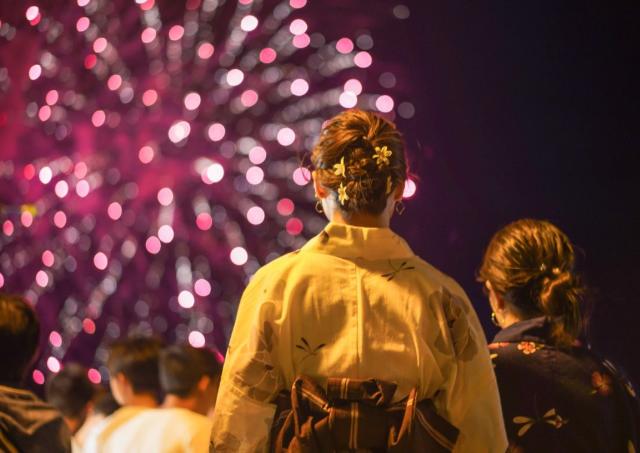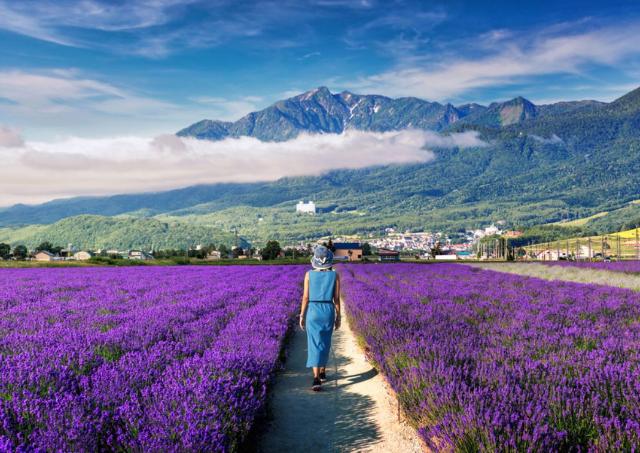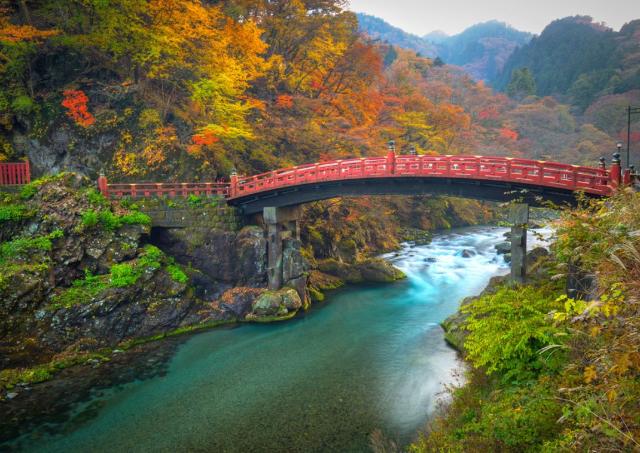Skiing in Hakuba: World-Class Runs, Best Resorts, and Aprés-Ski Tips
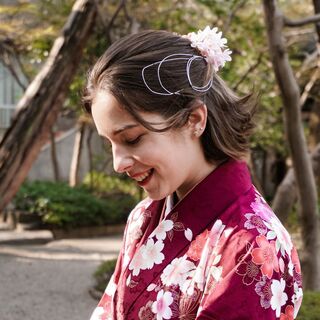
Manager Japanspecialist
Budapest, Hungary
Hakuba is one of Japan's top ski destinations in the Northern Japan Alps. Known for deep powder snow and diverse ski resorts, it’s perfect for all skill levels. This guide covers everything about skiing in Hakuba, from the best resorts to ski at, to getting there, where to stay, and various other activities.
Key Takeaways
Hakuba Valley, located just a few hours by bullet train from Tokyo, features nine ski resorts, each offering diverse terrains and experiences, making it ideal for skiers and snowboarders of all skill levels.
Visitors can easily access multiple ski resorts with the Hakuba Valley All-Mountain lift pass, enhancing their skiing experience across the valley’s extensive 960 hectares of skiable terrain.
Hakuba offers a variety of accommodations, dining and aprés-ski options, and activities beyond skiing, including hot springs, family-friendly snow activities, and cultural attractions, ensuring a well-rounded holiday experience.
Discover Hakuba Valley
Hakuba Valley is situated at the centre of the Northern Japan Alps, in Nagano Prefecture, characterized by its towering alpine peaks and breathtaking alpine scenery. Spanning an area of 189.36 square kilometres, Hakuba offers a plethora of outdoor activities, making it a year-round destination. The winter months transform Hakuba into a magnet for ski and snowboard enthusiasts worldwide, making it the most sought-after ski region on the Honshu Island of Japan – read our blog about all ski regions in Japan here.
Accessing Hakuba is simple. From Tokyo, the shinkansen to Nagano followed by a bus or shuttle to Hakuba takes about three hours. Alternatively, a direct highway bus from Shinjuku Station, Tokyo takes approximately four hours. A one-way train ride on limited express and local train from Shinjuku Station to Hakuba costs around 8,000 yen, while direct bus fares range from 4,500 to 8,000 yen.
Hakuba gained international fame as the host of several major ski jumping and alpine skiing events during the 1998 Nagano Winter Olympics. The events took place at Hakuba Ski Jumping Stadium and Happo-One Ski Resort. With its impressive terrain and facilities, Hakuba remains a legacy destination for winter sports fans today.
Hakuba Valley, with its nine distinct ski resorts catering to all skill levels, promises a unique and unforgettable skiing experience. The ski season typically starts in late November and can extend to early May, providing ample time to enjoy the slopes.
Top Ski Resorts in Hakuba
Hakuba’s nine separate ski resorts each provide a unique winter holiday experience with diverse terrain and cultural opportunities. These ski resorts collectively provide a total skiable terrain of 960 hectares and a total of 110 kilometres of slopes, catering to different skill levels and preferences. Many ski resorts feature varied snow conditions, influenced by elevation and aspect, ensuring a dynamic skiing experience across the valley. See our itinerary for a perfect ski holiday in Hakuba here.
The convenience of the Hakuba Valley All-Mountain lift pass, covering access to all nine resorts, allows visitors to explore multiple resorts without the hassle of purchasing separate tickets. This setup makes Hakuba perfect for those eager to maximize their skiing adventure.
Below, we take a closer look at the top ski resorts in Hakuba and their unique offerings.
Hakuba Happo-One Ski Resort
Hakuba Happo-One is the largest ski resort in Hakuba Valley and is renowned for its extensive slopes and excellent off-piste opportunities. Catering primarily to intermediate and advanced skiers, Happo-One features numerous red and black runs on a total of 23 kilometres, that challenge even the most seasoned enthusiasts. The resort’s slopes were a key venue during the 1998 Nagano Winter Olympics, adding to its historical significance.
Happo-One also offers night skiing on its Nakiyama Slope, perfect for extending your snowy adventures into the evening. The resort’s proximity to the Happo Bus Terminal ensures easy access, making it a convenient choice for those arriving by public transportation. The resort also offers multiple parking lots around the base of the resort, and they’re all free of charge, making it convenient for self-driving travellers. Ski schools and rental shops can be also found all around the bases.
Hakuba Goryu and Hakuba 47
Interconnected, Hakuba Goryu and Hakuba 47 offer a seamless skiing experience with varied terrain options. Hakuba 47 is particularly noted for its early snow conditions and excellent north-facing slopes, making it a favourite among skiers seeking optimal snow quality. The resort also features a terrain park, moguls, and tree runs, catering to both skiers and snowboarders.
Hakuba Goryu ski resort, on the other hand, is known for its family-friendly environment, featuring a gondola lift that makes it accessible for all ages. Families can enjoy the Family Snow Park (Kodomo no Kuni), a snowy play zone with sledding, snow tubing, and snow play; wide, gentle slopes for beginners; an Alpine Botanical Garden which you can walk with snow-shoes; and family-friendly restaurants like Alps360 and Toomi Forest Café.
The combination of these two resorts ensures that visitors can enjoy a wide range of activities and terrain, making it a versatile option for families and advanced skiers alike.
Tsugaike Kogen Ski Resort
Tsugaike Kogen is recognized for having the most extensive beginner terrain in Japan, making it an ideal destination for novice skiers. The resort’s wide runs and gentle slopes provide a safe and enjoyable environment for those new to skiing. Despite its focus on beginners, Tsugaike Kogen also offers tree skiing and a large vertical range, catering to more experienced skiers looking for variety.
The typically quiet slopes at Tsugaike Kogen contribute to a serene skiing experience, allowing visitors to enjoy the beauty of the spectacular Japanese Alps without the crowds. This makes it a perfect spot for those seeking a more relaxed and peaceful ski holiday.
Cortina Ski Resort
Cortina is famous for its deep powder snow, and exceptional tree skiing opportunities, making it a favourite among advanced skiers. The resort’s consistent deep powder conditions ensure an exhilarating skiing experience, particularly for those who enjoy off-piste adventures.
Cortina is renowned for its off-piste tours, providing a variety of options for those looking to explore unmarked terrain. You can book with certified local ski guide companies, which usually include avalanche safety gear rental, guides, and transportation. Some even take you to hidden zones to fully immerse you in the powder experience.
Its unique offerings make Cortina a must-visit for thrill-seekers and powder hounds alike.
Iwatake
Iwatake is a less crowded option in Hakuba, offering a good mix of terrain for all levels of skiers. The slopes here offer stunning vistas of the Northern Alps, including Hakuba’s iconic 3 peaks, and balance out in terms of difficulty. There's also a freestyle park, Iwatake Love Snow Park, which includes small-to-medium jumps, boxes, and rails, changing through the season to keep things fresh.
With walking and snow-shoeing trails looping around the summit, it provides an amazing opportunity for photos, and a quieter atmosphere ideal for a laid-back winter experience.
Norikura Onsen Snow Resort
Norikura has less crowded slopes than the popular resorts of Hakuba, and a relaxed, local atmosphere. This resort is ideal for those looking to escape the crowds, and enjoy a quieter, more relaxed ski holiday.
With 8 lifts, 15 metres of fresh, powdery snow each year, and a beginner-friendly base combined with advanced tree-runs, it is a haven for powder-seekers. On top of that, the "onsen" in this resort's name stands for the hot springs at the resort's base, with many of the lodges featuring hot spring bathing opportunities, making for an ideal aprés-ski relaxation.
Kashimayari Ski Resort
Kashimayari stands out for its excellent cross-country skiing opportunities on 16 courses served by 10 lifts. Its specialized, natural terrain caters to those looking to explore the scenic beauty of the Japanese Alps on cross-country skis. While enjoying the resort, visitors can see Lake Aoki from several spots, serving beautiful winter views.
This resort is located closer to the Omachi Station on the shinkansen line, making it quicker to access from Nagano and bigger cities. However, it is less popular among internationals than the bigger resorts of Hakuba, making it a less touristy, hidden gem-like atmosphere.
Sanosaka Ski Resort
Sanosaka, a small but charming local resort located on the southern edge of the valley, provides a cosy and intimate skiing experience. Its compact size and local charm make it a perfect spot for those looking to enjoy a more personal and uncrowded ski holiday.
Most slopes are ideal for first timers and young kids, with very safe, wide and open terrain. There is also a kids' play zone with sledding, tubing, and snow toys. On top of that, the individual resort passes costs less than on the other Hakuba resorts, allowing for more fun for less cost.
Snow Conditions in Hakuba
With over 11 to 14 meters of annual average snowfall, Hakuba Valley is a premier destination for powder skiing. An average of 5-10 cm of snowfall per day is usual, with up to 30-60 cm overnight a few times a month, ensuring consistently good snow conditions throughout the season. January is known for its heavy snowfall and cold temperatures, creating ideal conditions for skiers.
February brings an average of 2.4 meters of snowfall to Hakuba, ensuring optimal powder conditions for skiing. Afterwards, during March, the snow quality can fluctuate, especially on sunny slopes.
Accommodation Options in Hakuba
A wide range of accommodations around the Hakuba ski resorts enhances its appeal to international tourists. Accommodations range from:
ski-in/ski-out hotels and lodges
traditional ryokans (Japanese inns)
pensions and guest-houses
western-style hotels
chalets & vacation homes
hostels & capsule inns
This variety caters to all preferences and budgets. Accommodation prices can vary greatly, depending on location and services provided.
Most accommodations are conveniently situated at the bases of the resorts, for example at Happo-One, Echoland, Happo Village, Misorano, Goryu, and in Wadano Village, ensuring easy access to ski areas. These locations allow visitors to maximize their time on the slopes without long commutes.
Echoland
Echoland, the main restaurant and bar area in Hakuba, is known for its lively atmosphere and vibrant nightlife. It is a popular destination for visitors seeking a variety of dining and entertainment options, making it the perfect spot to unwind after a day on the slopes. Food lovers can find numerous Japanese izakaya bars, ramen shops, international cuisine, and cafés and bakeries. Après-ski enthusiasts can chill in casual bars like the Mockingbird and The Rabbit Hole, or unwind in hot springs like Mimizuku Onsen and Obinata no Yu.
Wadano Village
Wadano Village is favoured for its close proximity to ski slopes, scenic alpine charm, and a quieter, more refined atmosphere. Nestled at the foot of the Happo-One resort, this peaceful retreat offers a blend of Japanese hospitality with Western-style comfort. Skiers can enjoy cozy restaurants offering Japanese kaiseki, sukiyaki, or Western alpine cuisine.
Wadano Village has many ski-in/ski-out accommodations with easy access to the slopes, making it ideal for early-morning powder hunters or families avoiding shuttle lines. Some accommodations that are also equipped with hot springs are: Shirouma-so Ryokan, Hotel Mifujien, and Hakuba Mominoki Hotel. Meanwhile, those who are looking to maximize their experience can find numerous boutique hotels and luxury chalets, with private onsens, fireplaces, full kitchens, and even concierge services.
Getting Around Hakuba
Shuttle buses make getting around Hakuba convenient, connecting various ski resorts to accommodations. The Hakuba Valley Shuttle Bus, free with a Hakuba Valley All Mountain Pass, offers easy access to most of Hakuba's ski resorts. There are also resort-specific shuttle buses, which are free for every skier to use - no lift pass required, serving areas like Echoland, Wadano, Happo Village, and Hakuba Station. One thing to be careful about is, however, that not all buses run late—night skiing areas (like Goryu) may need a taxi return.
The Hakuba Night Demand Taxi offers evening services from December to February, facilitating access to Hakuba’s nightlife and night ski slopes. Many accommodations also assist with local shuttle information and nearby bus stops, ensuring that guests have all the necessary details for getting around.
Activities Beyond Skiing
Beyond skiing, Hakuba offers a plethora of activities, ensuring a well-rounded holiday experience. Visiting the hot springs, or onsen, is a popular activity, offering a relaxing way to unwind after a day on the slopes. The private onsen Obinata no Yu offers breathtaking views and allows guests to wear bathing suits, making it a unique experience.
Hakuba also satisfies those interested in cultural experiences. Here are some highlights:
Zenkoji Temple in Nagano city, one of Japan’s oldest and most important Buddhist temples, is less than an hour from Hakuba and worth exploring.
Matsumoto Castle is another highlight, offering a glimpse into Japan’s rich history.
The Hakuba Saegusa Art Museum features collections of Japanese art and ceramics, reflecting the region’s cultural heritage.
Dining and Nightlife
Hakuba’s dining scene is as diverse as its slopes, with a mix of traditional Japanese dishes and international cuisines. Echoland, the central hub for restaurants and bars, offers the highest concentration of dining venues, focusing on Western cuisine alongside Japanese dishes. For a contemporary fusion of Japanese and Western cuisine, we recommend the Yukimine restaurant at the Snowpeak Land Station, an entertainment complex by Japan’s leading outdoor brand. From ramen and sushi to Thai and Italian, there is something to satisfy every palate in Hakuba.
Hakuba’s nightlife, though not as boisterous as some other ski resorts, offers a variety of bars and eateries catering to both Japanese and international visitors. Echoland is particularly vibrant in the evenings, making it the best area for nightlife in Hakuba, despite the higher drink prices.
Whether you’re looking for a cozy izakaya or a lively pub, Hakuba’s bars offer a range of atmospheres to suit different tastes.
Ski and Snowboard Lessons
Several ski schools operate in Hakuba, offering lessons in English for both skiing and snowboarding. These include Hakuba Ski Concierge, Evergreen International Ski School, Happo-One Ski and Snowboard School, Hakuba Snow Sports School, and Hakuba 47 Ski Academy International. Lessons are available for all skill levels, from beginners to advanced skiers, ensuring that everyone can enjoy their time on the slopes.
Hakuba Snowsports School offers various lesson options, including group and private lessons, as well as a special program for kids. Beginner skiers and families can benefit from the Toomi and Iimori lower slope areas at Goryu Ski Resort, which provide a safe and enjoyable learning environment.
The starting price for a group lesson is approximately 7,000 JPY for 2 hours, making it an affordable option for those looking to improve their skills.
Lift Passes and Tickets
The All Hakuba Mountain Lift Pass is a convenient option for those looking to explore multiple ski areas within Hakuba Valley. This pass provides unlimited access to all lift systems and slopes across the valley, allowing skiers to maximize their experience without the hassle of purchasing separate tickets for each resort. The lift passes are valid for multiple resorts on the same day, offering great flexibility for visitors.
Adult lift pass prices vary by duration, with a single day costing around 8,000 JPY. Children aged 6 to 12 can get a lift pass for 4,500 JPY for a single day, while children under 6 years of age can enjoy free lift access at most resorts. This makes it an affordable option for families planning an extended ski holiday in Hakuba.
Insider Tips for Your Hakuba Ski Holiday
Here are a few insider tips to make the most of your Hakuba ski holiday:
1. Be mindful of the one-way roads in Hakuba, as they can be confusing for first-time visitors.
2. Wear warm, waterproof footwear with good grip, as snowy conditions can make walking challenging.
3. Tap water is safe to drink in Hakuba.
4. Remember that swimwear is not permitted in public onsens, so follow the local etiquette.
5. Make reservations in advance when dining out, especially during peak travel times, to ensure you get a table at your preferred restaurant.
6. Most resorts offer ski rental services, and many accommodations can arrange delivery.
7. Consider sending your skis ahead using Takkyu-bin or local delivery services if taking a bus from Shinjuku to Hakuba, as buses may not accommodate extra luggage if full.
Recap: Why Hakuba is Worth the Trip
Hakuba Valley is a premier skiing destination that offers something for everyone, from its diverse ski resorts and excellent snow conditions to its vibrant dining and nightlife scene. With a range of accommodation options and activities beyond skiing, Hakuba ensures a memorable ski holiday for all visitors. Whether you’re seeking thrilling runs, serene slopes, or cultural experiences, Hakuba has it all. Plan your trip, embrace the adventure, and create unforgettable memories in the spectacular Japanese Alps.
Frequently Asked Questions
When does the ski season start and end?
Most resorts in Hakuba open mid-November, with full operations by mid-December, and close around early May (usually near Golden Week), depending on snow conditions.
How much does it cost to ski in Hakuba?
The cost of skiing in Hakuba depends on how many days you ski, which resorts you choose, and what kind of lift pass, rentals, and accommodation you need. A one-day ski pass can cost from 6,000-8,000 JPY, a ski/snowboard rental set is around 5,000 JPY. Group ski lessons are around 5,000-8,000 JPY for 2 hours. Lodging can vary based on the quality, from hostels around 5,000 JPY/night, to group chalets around 12,000 JPY/night/person. Transportation to Hakuba from Tokyo is around 5,000-8,000 JPY. Adding a few thousand yens for meals, total costs can result in 25,000-35,000 JPY per day for a person.
What is the average snowfall in Hakuba?
The average snowfall in Hakuba is approximately 7-10 cm per day, with up to 30-60 cm overnight a few times a month. On average, 11 to 14 meters of snow falls per year. This consistent snowfall contributes to its reputation as a premier ski destination.
How can visitors get around Hakuba?
Visitors can easily navigate Hakuba via free shuttle buses (some requiring ski passes) connecting ski resorts and accommodations, and using the Hakuba Valley Shuttle Bus is complimentary with a Hakuba Valley All Mountain pass.
What type of accommodation options are available in Hakuba?
Hakuba provides diverse accommodation options ranging from luxury apartments and spacious chalets to hostels and traditional ryokans, catering to various preferences and budgets.
Are ski and snowboard lessons available in English?
Yes, many ski schools in Hakuba provide lessons in English for both skiing and snowboarding. It's a great option for English speakers looking to learn on the slopes.
How about night skiing, sunrise sessions, and terrain parks?
Night skiing is available at Goryu/47 from late December to mid-March (approx. 18:00–21:30). Sunrise ski is available on Toomi slope (Goryu/47) on weekends & holidays, included in day or AM passes. Terrain parks can be found mostly at Hakuba 47.
Can I go off-piste? Are there backcountry access rules?
Strict policies apply. Some resorts require mandatory avalanche safety briefings, wristbands, or tags before entering tree runs (Tsugaike and Goryu). We advise going with a certified guided ski company for safe off-piste adventures.
Not sure where to start?
From lift passes to lodging, we’ll help craft the perfect Hakuba ski experience - just for you.
Discover our Hakuba Ski Trip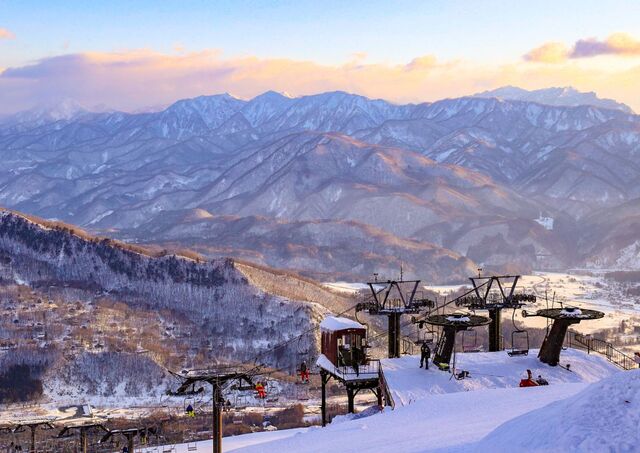
You may also be interested in these articles
Summer is a popular time to visit Japan, and although it can get pretty hot and humid, if you spend your time like a local you’ll be having fun and forgetting the […]
Because Hokkaido is so far north, it’s known for its snowy scenes and cold weather. But that cooler northern climate is one reason it’s the perfect place to visit in […]
If you’re visiting Japan in autumn, Nikko is one of the most beautiful places to go! Nikko makes a great day trip or 1-night trip from central Tokyo.

